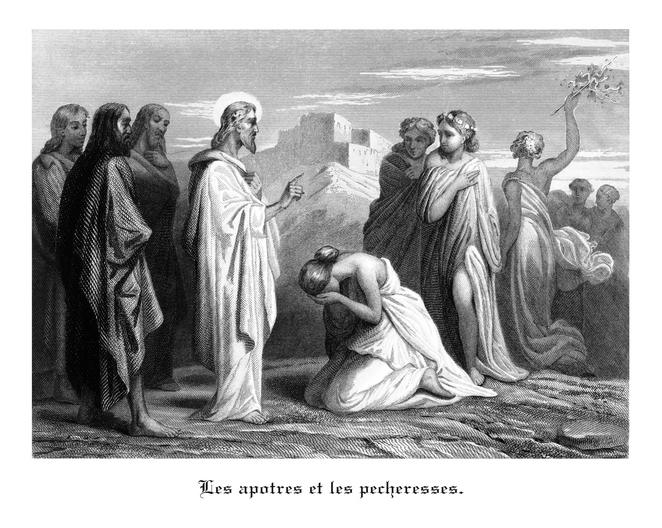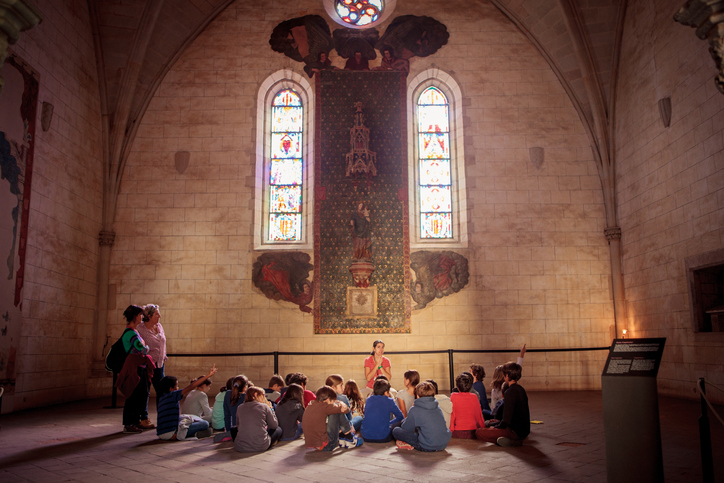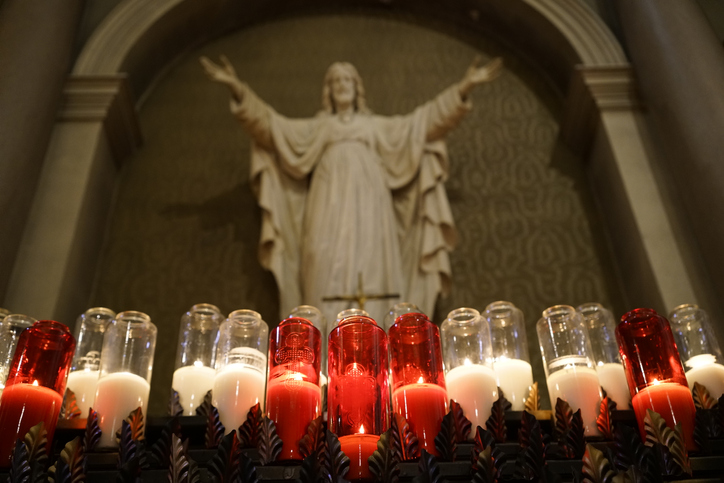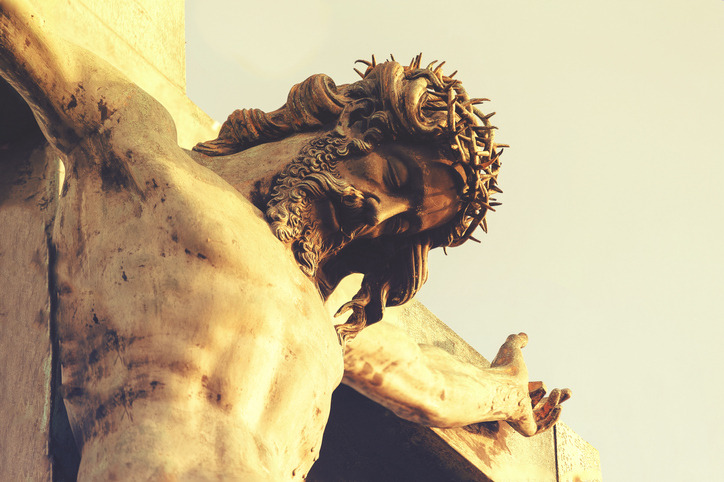Do you ever feel like certain aspects of your life are like the song that never ends? Never-ending diapers, never-ending cooking, washing, drying, never-ending home improvement projects, drywall, mud, sand, paint. It just goes on and on and on. At times I think I’m going to drop from sheer exhaustion and other times I think I would be bored out of my mind if I didn’t have anything to do.
I wonder if the first disciples felt the same way. After Jesus rose from the dead and they were filled with the Holy Spirit, they were told to go out to all the world and spread the Good News. Now that is quite the task! My diaper changes and drywall projects are like a drop in the bucket compared to going out to the WHOLE world!
Yet that is what we are called to do. Be a good example, live a holy life, teach our children, be a light to those around us… Today’s First Reading invites us to “set an example for those who believe, in speech, conduct, love, faith and purity. [A]ttend to reading, exhortation, and teaching.” That’s a pretty tall order! But Jesus never promised that following Him would be easy.
Perhaps the Pharisee who had invited Jesus to dine with him thought the sinful woman who interrupted their dinner was like the song that never ends. Surely he rolled his eyes at her repentance because he knew “what sort of woman” she was. “She’ll just keep sinning over and over again,” he thought to himself. “She’ll never change.”
The Pharisee had no clue who he was dealing with, who Jesus truly was, and how powerful his love is in the changing of hearts. I am often guilty of the same. I feel like I’m stuck in a rut in both my everyday life and in my spiritual life, and I am so tempted to believe that things will never change. Yet the life of a Christian is all about transformation. We should not stop learning, changing, and growing in our walk with the Lord. But above all, we should not allow ourselves to fall into despair and believe the lie that we CAN’T change because the One who changes us is our all-powerful God.
So I invite you to join me today in asking God for a renewed faith, hope and love so that he may say to us, just as he said to the sinful woman who showed him such great love, “Your sins are forgiven. Your faith has saved you; go in peace.”

Tami grew up in Western Michigan, a middle child in a large Catholic family. She spent early young adulthood as a missionary in Mexico, studying theology and philosophy, then worked and traveled extensively before finishing her Bachelor’s Degree in Western Kentucky. She loves tackling home improvement projects, finding fun ways to keep her four boys occupied, quiet conversation with the hubby and finding unique ways to love. She works at Diocesan, is a guest blogger on CatholicMom.com and BlessedIsShe.net, runs her own blog at https://togetherandalways.wordpress.com and has been doing Spanish translations on the side for almost 20 years.




















